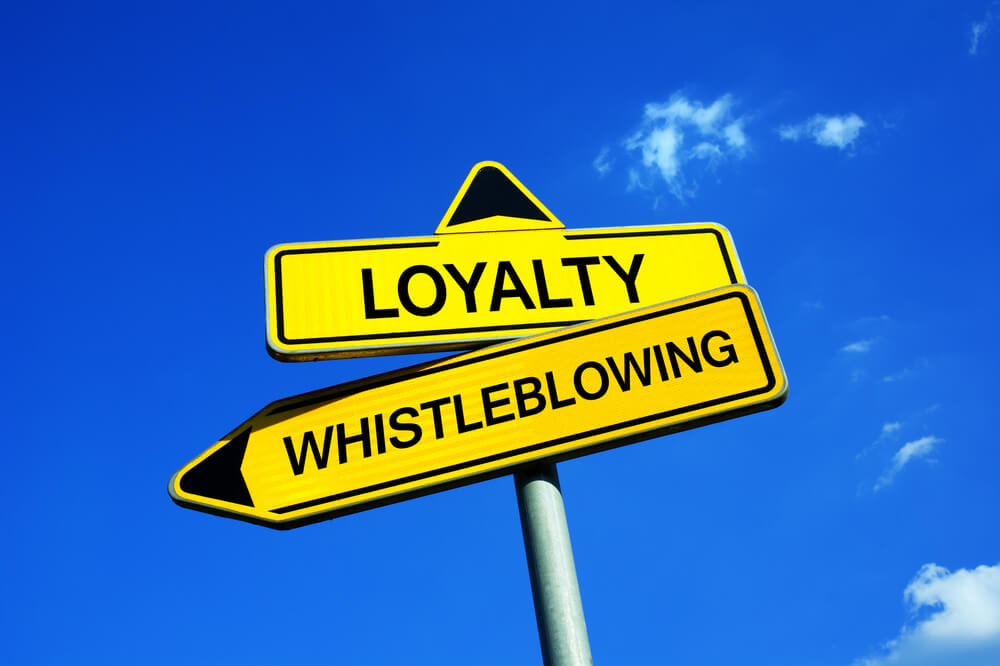Reporting misconduct at work can be a challenging and sometimes frightening process, but making those reports can be critical to maintaining a safe and ethical workplace. If you believe that your employer or someone at your workplace is engaging in illegal conduct, it is important to know your legal rights, and how to report such illegal conduct professionally and effectively while also protecting yourself from retaliation.
Check Your Employee Handbook When Reporting Misconduct at Work
If your employer has provided an Employee Handbook, it’s always a good idea to consult it when reporting misconduct at work, as it can provide you with valuable information on the reporting process and your rights as an employee.
Most employee handbooks will include a section on reporting misconduct, which should detail the appropriate steps to take if you witness or experience illegal or unethical behavior in the workplace. This may include reporting the misconduct to your supervisor, the human resources department, or an external agency such as law enforcement.
In addition to providing information on the reporting process, your employee handbook may also include information on your rights as an employee, including any protections you may have as a whistleblower. For example, in Minnesota (and most other states) employers are prohibited by law from retaliating against employees who report illegal conduct, and your employee handbook should provide information on these protections.
Given the foregoing, it is important to review your employee handbook carefully and follow the procedures outlined for reporting misconduct. If you are unsure about how to proceed, consider speaking with a supervisor or human resources representative for guidance.
Documentation
When reporting misconduct at work, it is important to document everything to ensure that the situation is handled appropriately and that you are protected from potential retaliation.
Record the dates and times of any incidents of misconduct, as well as any subsequent interactions or conversations with relevant parties. This will help establish a timeline of events and can be useful in determining whether the company is taking appropriate action.
Write down a detailed description of the incident, including what happened, who was involved, and any witnesses. Be as specific as possible, including any relevant information such as location, any physical evidence, and any other contextual details.
Document your response to the incident, including any actions you took, any conversations you had with colleagues or superiors, and any emotions you felt. This will help demonstrate that you took the situation seriously and acted appropriately.
Contacting HR or Supervisor
Keep records of any conversations or email exchanges with HR or management regarding the incident. This can help demonstrate that you reported the incident and that the company was aware of the situation. If you are reporting workplace misconduct, it is important to follow the appropriate protocol to ensure that your report is taken seriously and that the issue is addressed.
If the misconduct is related to your supervisor, contact your HR department or a higher-level supervisor. If your supervisor is the person engaging in the misconduct, it can be difficult to report the issue to them directly. In this case, you should escalate the issue to someone higher up in the organization or contact HR directly.
If the misconduct is related to a coworker, contact your HR department or supervisor. If the issue involves a co-worker, you should report the misconduct to your supervisor or HR department. They will investigate the issue and determine the appropriate course of action.
Following Proper Steps When Reporting Misconduct at Work

In every instance, it is important to document the misconduct and any communication you have with your employer about it. This can help support your claim and ensure that the issue is properly addressed.
Remember that reporting misconduct can be a difficult and stressful experience, but it is an important step for maintaining a safe and ethical workplace. By following the procedures outlined in your employee handbook and seeking the advice of an attorney, you can help ensure that your rights are protected and that the appropriate actions are taken to address the misconduct.
If you’re ready to take the next steps after reporting misconduct at work, contact us today.



